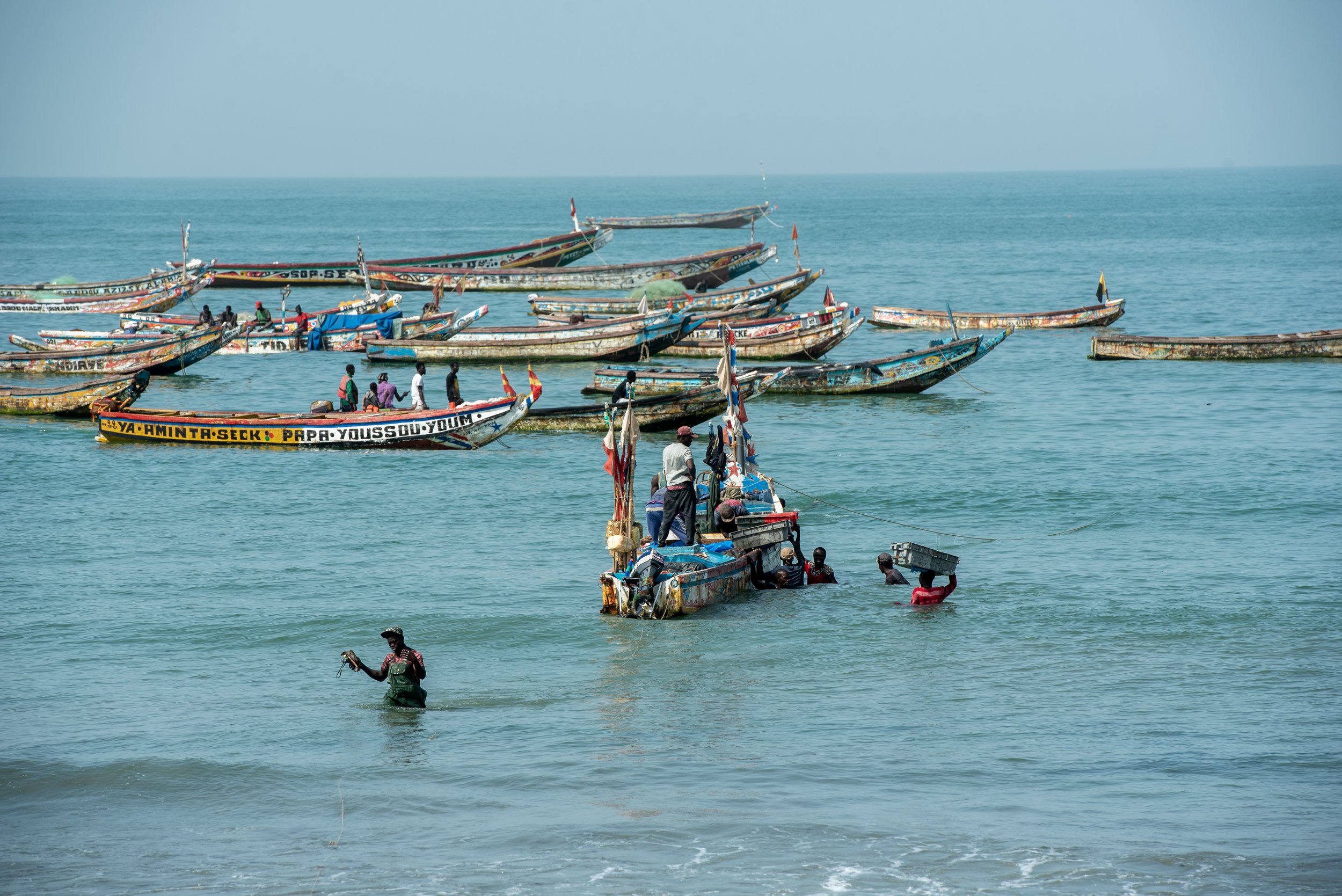An episode of ARTE's investigative magazine Sources, entitled 'Salmon: a story of smoke and mirrors', traces the journey of fishmeal and fish oil produced in Mauritania coming to Europe.
The production of fishmeal and fish oil in Mauritania contributes to the overexploitation of small pelagics, particularly sardinella, threatening the future of artisanal fishing communities that depend on these resources for their livelihoods, and undermines food security throughout the region.
But the vessels that catch small pelagics for fishmeal also degrade the coastal environment. ARTE journalists followed the Turkish seiner HICAZ 6. This type of vessel can catch 400 tons of small pelagics per trip. In 2021, the HICAZ 6 made 102 outings at sea, always staying relatively close to the coast, in the area where the sardinella are concentrated: "If we cross-reference these trips with data on the depth of the oceans, we see that this area is no more than 100 meters deep. With a net that goes down to 150 meters, the Hicaz-6 scrapes the seabed, leaving no chance for the fish," explains the ARTE documentary produced by journalist Linda Bendali. This vessel, like other purse seiners fishing for fishmeal and fish oil, unloads its catches at the fishing port of Nouadhibou, or directly on the fishmeal factories quays.
While fishmeal from Mauritania is mainly exported to Asia, with China in the lead, most of the fish oil comes to Europe. At the forefront is the French company OLVEA, which imported over 15,000 tons of fish oil from Mauritania in 2020. Based in Fécamp (Normandy), OLVEA also has a factory in Nouadhibou. The company has a turnover of €162 million, 12 subsidiaries and a workforce of almost 300 people worldwide. OLVEA markets 49,000 tons of fish oil each year, a third of which comes from Mauritania.
Dr Jekyll or Mr Hyde?
On its website, the company readily displays its environmental credentials, including: “OLVEA Fish Oils is committed to sourcing its fish oils from fishing areas where fish stocks have been monitored and assessed by the FAO and local research institutes as not being at risk of collapse.” It must have escaped their notice that amongst the resources they use, round sardinella, the most prized by local people, are considered by the FAO to be heavily overexploited in West Africa.
We already sounded the alarm in 2019, denouncing the fact that OLVEA is financing and engaging in a "Fisheries Improvement Project" (FIP) in Mauritania, aimed at helping the fishmeal and fishoil industry to earn its green stripes. As we have recently demonstrated, this FIP is being developed despite the deplorable state of the resources exploited by the fishmeal and fishoil industry in West Africa.
However, when it comes to answering questions from journalists, OLVEA is less forthcoming. On its website, the company has no contact details for the media. ARTE tried to call OLVEA's communications officer, but she did not answer and then blocked the journalists' number. No follow-up was given to the email reminders either. The lack of transparency goes further: "OLVEA is a discreet company. In the commercial register it has not published its accounts since 2018, which is illegal," explains ARTE.
But where does the oil go?
ARTE continues its investigation by following the tankers that transport the fish oil: "Several tankers, the KEY BAY, the KEY BREEZE, the KEY SUND and the KEY WEST, stop regularly at the port of Fécamp, where Olvéa has a dedicated quay.” These ships load fishoil at Nouadhibou several times a year, and then serve the port of Fécamp and other ports in Norway, the UK and the Netherlands where there are fish feed producers or aquaculture producers.
In October 2022, the KEY BAY was filmed loading oil in the port of Nouadhibou. It arrived in Fécamp at the beginning of November to empty part of its oil load for OLVEA, and then headed for Norway. "It reached the small fishing port of Valsneset, where there is only one industry: MOWI, the world's largest producer of farmed Atlantic salmon," the ARTE report reveals. The oil landed there is incorporated into salmon feed, which is sold all over Europe in supermarket chains...
A glimmer of hope?
Claims by European importing companies such as OLVEA that their fish oil from Mauritania is produced under sustainable conditions are misleading and hide the fact that the fish oil and fishmeal industry in West Africa is a major contributor to the over-exploitation of the resources that coastal communities depend on for their livelihoods.
Could this well-oiled model of opacity one day be shaken up by the European Union? The European institutions are currently discussing the due diligence to be exerted by European companies to encourage sustainable and responsible behaviour. Companies will be obliged to identify and, where appropriate, prevent, halt or mitigate adverse effects of their activities on human rights and the environment, for example pollution and biodiversity loss. After a period of adaptation, this directive would cover companies that employ more than 250 people and have a net turnover of €40 million... Just like OLVEA.
Banner photo: The entrance of the harbour of Fécamp, in Normandy, by Benoît Deschasaux.










In mid-September, a factory ship flying the Gambian flag and owned by a Maltese company collided with and sank a trawler flying the Mauritanian flag and owned by a Spanish company. Five Mauritanian seafarers lost their lives. What about European responsibility behind this tragedy?